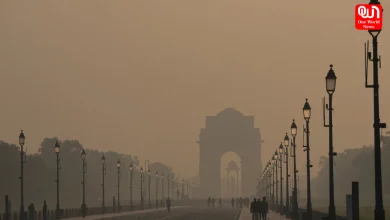India Suspends Indus Waters Treaty After Terror Attack: Potential Water Crisis Looms Over Pakistan
India’s suspension of the Indus Waters Treaty could trigger a severe water crisis in Pakistan, threatening agriculture, economy, energy, and environment.
India’s Indus Waters Treaty Suspension: A Strategic Move with Deep Consequences for Pakistan
An Indian decision to suspend the long-standing Indus Waters Treaty (IWT) between India and Pakistan has the potential to drastically alter regional dynamics, sending ripples across South Asia. This tactical move comes in the wake of Pahalgam’s deadly terror attack, throwing India back into an internal discussion about relevance and fairness of continuing water cooperation with its western neighbor.
The 1960 IWT, brokered by the World Bank, is among the world’s most durable treaties on water-sharing. It distributes the six rivers of the Indus River system between the two countries: the eastern rivers (Ravi, Beas, and Sutlej) to India, and the western rivers (Indus, Jhelum, and Chenab) to Pakistan. Although India is only allowed limited use of the western rivers—for non-consumptive uses such as hydroelectric power—it has given Pakistan practically unchecked authority over the waters of these rivers. That mutual respect is now under strain.
The Cabinet Committee on Security (CCS) announced the suspension of cooperation under the Indus Waters Treaty just one day after the Pahalgam incident. While, in effect, this is not a full withdrawal, it stands as a major shift in India’s diplomatic position and the regional geopolitical scene indicative of India’s increasing frustration over cross-border terrorism and its ramifications on national policy.
Immediate ramifications of this step are bound to strongly stir in Pakistan. Indus and its tributaries supply water to the tune of about 80% for sustenance to Pakistan. The slightest alteration of that water system could awaken chaos in terms of the water supply, especially in the highly populated regions that depend heavily on agriculture. It could deal a deadly blow to such an agriculture-dependent economy.
Read more: Historic Low: Under-Five Deaths Drop Globally; Rwanda, Cambodia Lead Progress.
Pakistan’s agriculture is now facing threats from an unfriendly climate and misuse of water. Wheat, rice, and cotton are the main crops that need constant water supply. If water is withheld, there will be crop failures ranging from wide-scale food insecurity to loss of livelihood for millions of farmers.
The brunt of it will also be borne by the energy sector. The Indus River system feeds into all of Pakistan’s major hydroelectric dams, Tarbela and Mangla. A significant reduction in water flow will worsen the energy crisis, which, in any case, hampers industrial productivity and daily routine.
These economic dooms have disquieting views. Agriculture roughly contributes 20% to the GDP of Pakistan and engages nearly 40% of its manpower. Any long-lasting impact would inevitably throw thousands into unemployment, skyrocketing poverty, and social unrest. The sudden rise in food prices would compel Pakistan to rely on importation of food at a much greater cost.
A very important consideration will be environmental damage. Lower river flow means loss of aquatic ecosystems, biodiversity, and livelihoods for local communities who depend on fishing or river-based agriculture—the humanitarian costs far outweigh everything else.
On one hand, India’s decision was a national security decision. On the other hand, it opens up another front in India-Pakistan relations. As both nations skirt the edges of this touchy issue, the world looks on, conscious of the fact that water, the most basic human need, has now turned into a geopolitical weapon.
We’re now on WhatsApp. Click to join.
Like this post?
Register at One World News to never miss out on videos, celeb interviews, and best reads.








